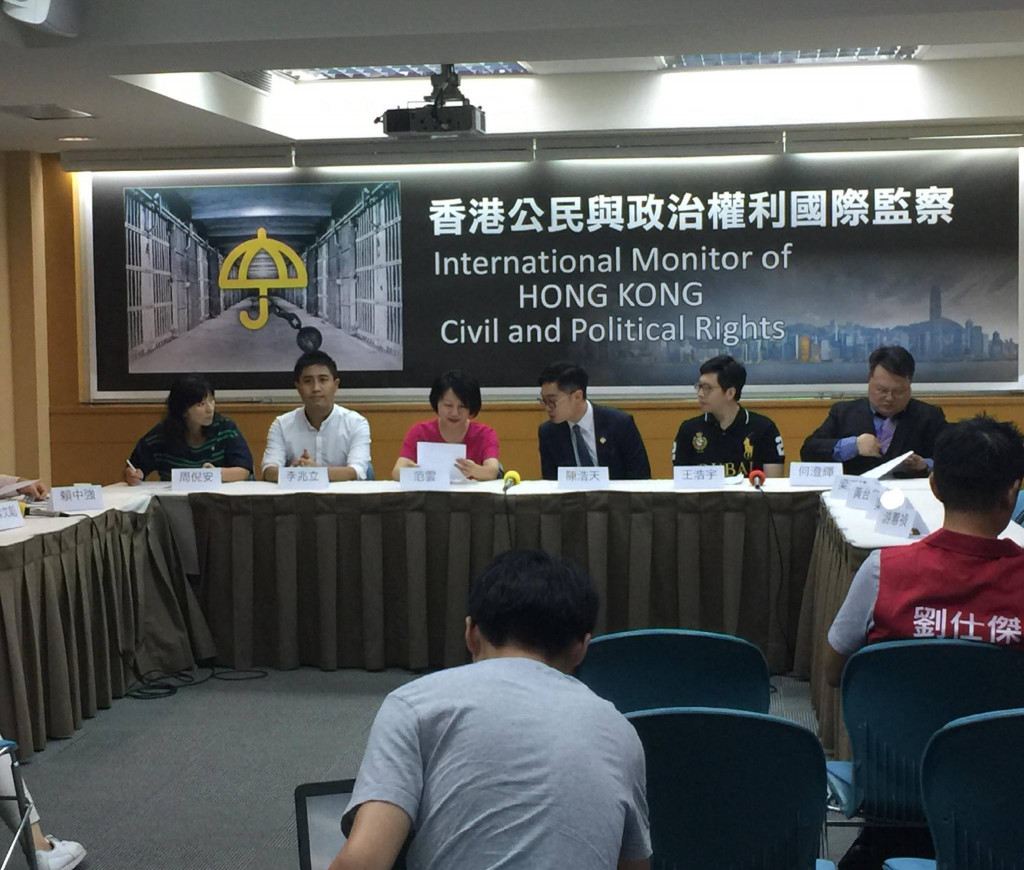In their recommendation to ban the pro-independence Hong Kong National Party (HKNP) on Tuesday, the legal grounding cited by the police was the Societies Ordinance. They told the government that there was a sufficiently strong case in the interests of “national security, public safety, public order, protection of freedom and rights of others” for the security secretary to ban the embattled group.
It was the first time that the section of the colonial-era law was used after the 1997 Handover, and it was surprising to many that national security was used as one of the reasons. After all, Hong Kong’s national security law legislation – stipulated by Article 23 of the Basic Law – had failed to pass in 2003 following mass protests, and has yet to return.

The Societies Ordinance was first established in 1911 requiring societies to register. It was then amended several times, but the law had been intended to control political groups with links to foreign organisations – such as the Kuomintang and the Communist Party – as well as triads.
Beijing intervention
In 1992, the law was amended so that it would be in line with the Hong Kong Bill of Rights passed the year before. It was loosened so that new societies did not have to register, but simply notify the police.
Under the new law, the secretary for security would be able to ban a group if they reasonably believed that its operation would harm the “security of Hong Kong.” The government said that “security” referred only to the survival or well-being of the territory as a whole, and not simply to the interests or well-being of the government.
It meant that suggestions to overthrow the government – without any violent action – were unlikely to be banned.

However, China and the UK had differences over constitutional issues in 1990s, and China decided to form its own Provisional Legislative Council in Shenzhen. The 1992 version of the Societies Ordinance was one of those repealed and thus would not continue to be in effect after the July 1997 Handover.
The June 1997 Provisional Legislative Council version – which then became the current version – changed the law to include a provision whereby “national security” could be one of reasons to ban a society.
Use of violence
In the ordinance, “national security” was defined as the safeguarding of territorial integrity and the independence of the People’s Republic of China.
In considering whether national security was harmed, the use of – or threat of – violence was not a necessary factor.
In fact, at the time, the Office of the Chief Executive-elect told the Provisional Legislative Council that it would issue a set of guidelines to the police commissioner so that any consideration relating to national security “must be consistent with what is necessary in a democratic society.”

However, in the police recommendation to the security secretary to ban HKNP, Assistant Societies Officer Rebecca Lam wrote that – although the party has not committed any violent acts – the government should not wait until a political movement has recourse to violence before intervening.

The recommendation listed nine “concrete actions” of HKNP it had adopted in its fight to achieve independence. The list included: holding street booths and public meetings, attempting to participate in the Legislative Council election, recruiting members and raising funds, and “conducting propaganda” by giving press interviews.
International principles
The Progressive Lawyers Group said that it was deeply concerned about the legal basis of the recommendation, since it was questionable whether the promotion of certain political ideas could suffice as a legitimate basis for invoking the “national security” reasoning.

The group cited several European Court of Human Rights judgments, one of which said: “Demanding territorial changes in speeches and demonstrations does not automatically amount to a threat to the country’s territorial integrity and national security.”
The group also said that, according internationally recognised guidelines such as the Siracusa Principles and the Johannesburg Principles, “national security” may be invoked to justify measures limiting certain rights – only when it is used to protect the existence of the nation, or its territorial integrity, or political independence against force or threat of force.
Freedom of association
This week, Secretary for Security John Lee stated that there was one reason available to ban societies which was not used in the Hong Kong National Party case. The ordinance states that societies can be banned if they are connected to a foreign political organisation or a political organisation of Taiwan.

In the law, Hong Kong societies have a “connection” with foreign political organisations under four circumstances:
- If they received funds from foreign political organisations;
- If they were affiliated with foreign political organisations;
- If their policies were determined by foreign political organisations;
-
If foreign political organisations direct, dictate, control or participate in the decision-making process of the societies.
Andy Chan, convener of HKNP, went to Taiwan in early July to attend an event hosted by a Taiwanese group concerning Hong Kong political rights.
It is uncertain whether the event had any relation to the potential ban, but Chan had said he has his suspicions.
On Tuesday, the party was given 21 days to justify why it should not be banned by the government.
